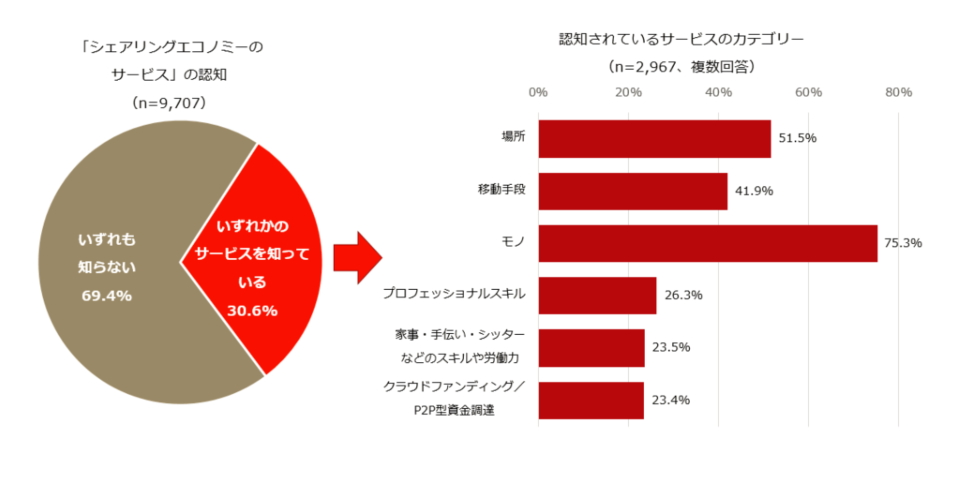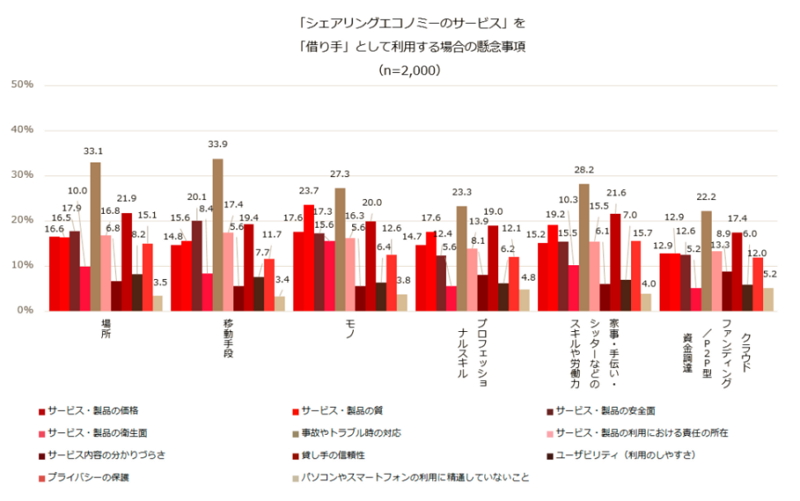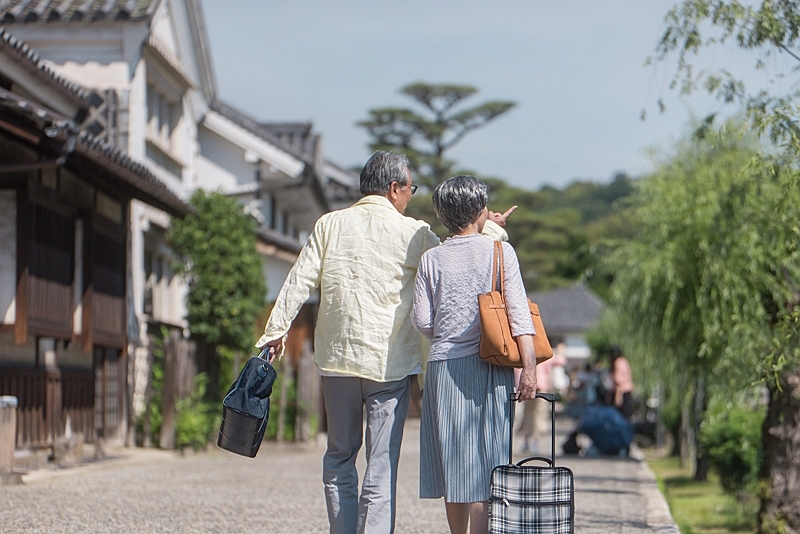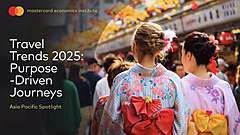
The latest awareness survey on the sharing economy in Japan, conducted by PwC Consulting, finds an awareness rate of 30.6%. The rate is about 20% among people in their twenties, and declines steadily with age.
Regarding services, the highest awareness rate was discovered for "sharing things" (75.3%), followed by "sharing places" (51.5%) then "sharing transportation" (41.9%).
The following graphics show the awareness rates:

The survey also reveals that 52.4% of people have no intention of using sharing economy services, and 11.5% are barely motivated (totaling 63.9% of negative attitudes). Only 1 out of 3 persons has a positive attitude towards the sharing economy (13.4% planning to use such services and 22.7% considering their use). As far as the sharing of things is concerned, however, the ratio of pro-users exceeds 25%.

Regarding the economic or social impacts of the sharing economy in Japan, 59.1% of answers were positive. At the top: "Reducing useless production and consumption" (33.8%), "Developing new businesses and technologies for innovation" (29.6%) and "Changing how to work" (26.3%).
The biggest concern for potential users of the sharing economy is the response in case of trouble or accident. Beyond, the reliability of hosts and safety of services/products were listed.
The graph below illustrates the concerns of potential users regarding services in the sharing economy:

The online questionnaire survey was conducted from 16 to 18 May 2017, and included 9,707 valid answers.





